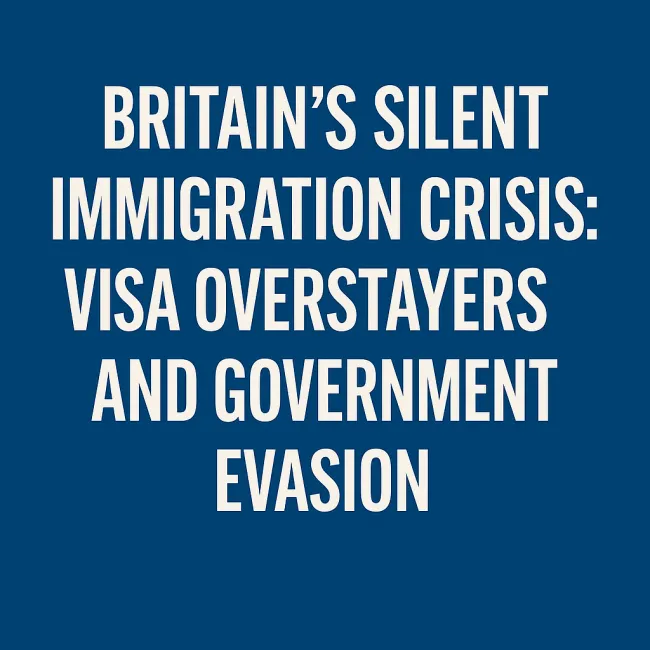
In a recent video, Jacob Rees-Mogg discussed a lesser known issue with immigration. While cameras linger on dinghies in the Channel, the larger immigration crisis is playing out silently, through individuals who arrive legally on short-term visas, overstay, and disappear into the grey economy.
In 2024, 36,816 people arrived in small boats, 25% more than in 2023. By the end of July 2025, over 25,000 had crossed, the fastest year on record. These are serious numbers. But they’re dwarfed by the flow of visa overstayers — people who arrive with a valid visa, and simply never leave.
The UK stopped tracking departures properly in the 1990s. Exit checks were formally scrapped in 1998 in favour of alternative methods. Despite repeated promises to restore them using airline data and digital records, the Home Office has not matched arrival and departure data since 2020. That means for five years, no one in government has had a reliable idea of who has actually left the country.
Independent analysis fills the gap. Between 2016 and 2020, an estimated 63,000 non-EU nationals overstayed their visas each year. A study by the Greater London Authority placed the total undocumented population in the UK at 674,000, with around 400,000 living in London. These are not speculative guesses. They’re based on patterns that government refuses to acknowledge.
Meanwhile, the so-called “Skilled Worker” route, heavily promoted by ministers, has admitted over 1.1 million people by December 2024 since it opened in 2020, including 630,000 as dependents of the main applicant. No assessment has been made of whether they leave when their permits expire. No checks on whether their dependants are working legally. No enforcement. Just blind faith in a system that isn’t being monitored.
In 2024, just 8,164 individuals were removed from the country. That’s a fraction of the number likely overstaying in a single year, even taking the 25,186 who voluntarily returned into account. Enforcement has collapsed. Those who break the rules are ignored. Those who follow them are penalised. And all the while, ministers keep claiming the system is under control.
The consequences are obvious. Illegal work undercuts wages and deprives the Treasury of tax. Public services and housing face unsustainable pressure. Trust in immigration policy collapses. And genuine asylum seekers are drowned out by thousands of opportunistic claims lodged only after someone is caught.
This is not an immigration system. It’s a holding pattern built on neglect.
There is a way forward, but only if the political will exists:
Reinstate physical exit checks at all ports and airports.
Publish quarterly data on visa overstays and removals.
Cross-check visa entries with airline departure records to quantify the scale of the problem.
Treat overstaying as the criminal offence it is, with swift, administrative removal procedures.
Use leverage with foreign governments that refuse to accept their nationals, through visa caps, trade consequences, and suspension of aid.
None of this prevents the UK from operating a generous, lawful immigration system. But it does require rules to mean something.
Labour and Conservative governments alike have spent decades avoiding this issue, afraid, perhaps, of what the numbers would show. But the public is no longer fooled. People know when they’re being taken for granted.
The choice now is between control or continued evasion. Between enforcement or excuses. And whether Westminster accepts it or not, a growing number of voters are demanding action. Reform is coming, and it won’t wait forever.